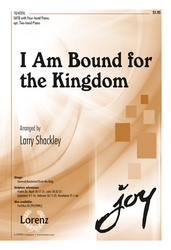- |
User Links
Come, Thou Fount of Every Blessing
Hymn Information
- First Line
- Come, thou Fount of every blessing
- Author
- Robert Robinson (1758, alt.)
- Tune Name
- NETTLETON
- Tune Source
- J. Wyeth's <cite>Repository of Sacred Music</cite>, Part II, 1813
- Topic
- Biblical Names and Places: Ebenezer · Eternal Life · Jesus Christ: Blood of · Jesus Christ: Grace · Music and Singing · Elements of Worship: Opening of Worship: Called And Gathered
Copyright Information
- Text Copyright
- Public Domain
- Tune Copyright
- Public Domain
- Reprint/Projection Information
- Words and Music: The Words and Music are in the Public Domain; you do not need permission to project or reprint the Words and Music.
Full Text
Scripture References
- · · · · · · ·
Further Reflections on Scripture References
This fine text about divine grace and providence contains various biblical images: Christ is the "fountain of life" (Ps. 36:9; Zech. 13:1) from which "streams of mercy" come. But Christ is also our "rock" (often used in the psalms along with "mount" or "Ebenezer," which means "stone of help"); he "rescues me from danger." Christ also "sought me when a stranger" (Col. 1:21) and "binds" or "seals" his own even when they are "prone to wander" (see Matt. 18:11-14). That phrase may have had special meaning for Robinson, who became successively a Calvinist Methodist, Congregationalist, Baptist, and finally a Unitarian.
Confessions and Statements of Faith References
Further Reflections on Confessions and Statements of Faith References
We celebrate with joy that Christ has come to rescue us from sin and evil through the work of his son, Jesus Christ. Our World Belongs to God, paragraph 35 identifies the church as “the fellowship of those who confess Jesus as Lord…the bride of Christ…”
Belgic Confession, Article 21 professes how Jesus Christ is a high priest forever and provided for the cleansing of our sins; Article 10 proclaims him as the “true eternal God, the Almighty, whom we invoke, worship and serve.” Heidelberg Catechism, Lord’s Day 1, Question and Answer 2 calls us to “live and die in the joy of this comfort” and “to thank God for such deliverance.”
Come, Thou Fount of Every Blessing
Assurance
Come, Thou Fount of Every Blessing
Tune Information
- Name
- NETTLETON
- Key
- D Major
- Meter
- 8.7.8.7 D
Recordings
- Come, Thou Fount of Every Blessing
- Shawnee Park Christian Reformed Church - Grand Rapids, MI
- Neland Avenue CRC - Grand Rapids, MI
- Woodlawn Ave CRC - Grand Rapids, MI
- Woodlawn Ave CRC - Grand Rapids, MI
- LaGrave Ave CRC - Grand Rapids, MI
- Neland Ave CRC - Grand Rapids, MI
- LaGrave Ave CRC - Grand Rapids, MI


 My Starred Hymns
My Starred Hymns






